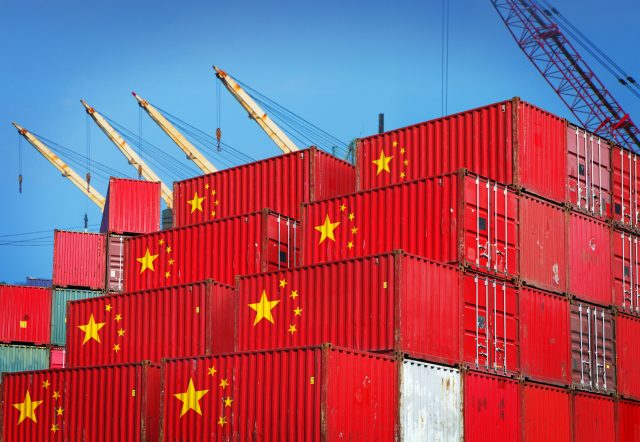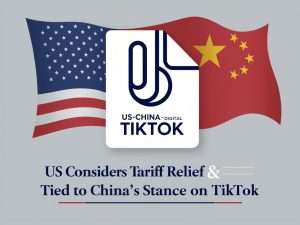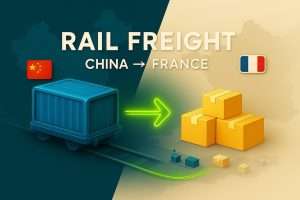Importing from China can be a complex and daunting process, especially for businesses new to international trade. However, with the right knowledge and preparation, it is possible to import products from China effectively and efficiently. In this discussion, we will share tips and insights based on our own experience of importing and selling products from China on various marketplaces. These tips will cover everything from finding the right product to choosing the right supplier, and will provide valuable information for those considering importing from China.
First tip: Differentiate Your Product Offering
One way to differentiate your product offering and potentially increase demand is to find a product that is not readily available in retail stores like Walmart. By offering customers a product that is difficult to find, you can stand out from the competition and potentially increase your sales, especially if you are selling on a marketplace like Amazon where customers are often looking for unique and hard-to-find products. To find such products, you can do some market research and see what products are in demand but not easily available in retail stores. You can also look for products that are popular in other countries but not yet available in your local market. For example, you could consider importing products that are popular in Asia, such as Korean beauty products or Japanese electronics, as these products may not be widely available in your local market. By offering these products to your customers, you can differentiate your product offering and potentially increase demand.

Second tip: Establish a Relationship with a Manufacturer or Supplier
It is essential to establish a relationship with a manufacturer or supplier in China to ensure that you have a reliable source of products and can get them at competitive prices. There are several ways to find manufacturers and suppliers in China, including using platforms like Alibaba, reaching out to industry associations and trade fairs, or using personal connections. When searching for a supplier, it is important to do your due diligence and research the supplier’s reputation and track record. Look for suppliers that have been in business for a while and have a good reputation among other buyers. It is also a good idea to request samples of their products and inspect them carefully to ensure that they meet your quality standards. Once you have found a potential supplier, it is important to communicate with them and get a better understanding of their operations. This can be done through messaging platforms or video calls, which will help you build a foundation for a long-term partnership. By establishing a good relationship with your supplier, you can ensure that you have a smooth and efficient importing process.
Third tip: Prioritize Quality Over Cost Savings
While it may be tempting to choose lower-priced products in order to increase your profit margin, it is important to consider the potential consequences of offering low-quality products to your customers. These consequences can include returns, negative reviews, and damage to your brand reputation. On the other hand, choosing higher-quality products, even if they come at a slightly higher price point, can ultimately lead to increased customer satisfaction and loyalty. This can result in repeat customers and positive word-of-mouth, which can ultimately drive more sales and revenue for your business. Therefore, it is important to carefully evaluate the quality of the products you are considering importing from China and prioritize quality over cost savings. One way to do this is to request samples of the products and inspect them thoroughly to ensure that they meet your quality standards. It is also a good idea to ask for references from other buyers who have purchased from the supplier to get a sense of their product quality.
Fourth tip: Consider Working with a Supplier
Contrary to popular belief, it is advisable to work with a supplier rather than a manufacturer in many cases. A supplier can handle the logistics of sourcing products from multiple factories and handling customs clearance in China, which can save you time and resources. They can also act as a point of contact for any issues that may arise, making the importing process smoother and more efficient. In addition, a supplier can often offer a wider range of products and can help you source the products you need at competitive prices. Therefore, it is worth considering working with a supplier rather than a manufacturer, especially if you are just starting out with importing from China.

Fifth tip: Implement a Quality Control System
It is essential to have a system in place for quality control to ensure that the products you are importing meet your standards and the standards of your customers. This can include pre-shipment inspections, testing, and working with a third-party quality control company. By implementing a quality control system, you can minimize the risk of receiving defective or subpar products, which can save you time and resources in the long run. Pre-shipment inspections, for example, allow you to inspect the products before they are shipped to ensure that they meet your quality standards. Testing can also be useful to ensure that the products meet any regulatory requirements or safety standards. Working with a third-party quality control company can be especially useful if you are unable to physically inspect the products yourself, as they can do the inspections and testing on your behalf.
Sixth tip: Understand the Import Process and Requirements
It is important to understand the import process and requirements in order to ensure that your products are shipped and cleared through customs smoothly. This can include obtaining necessary licenses and permits, paying import duties and taxes, and complying with any product-specific regulations. It is a good idea to research the import process and requirements in advance, and to work with a customs broker or freight forwarder who can assist you with the process. By understanding the import process and requirements, you can avoid delays and ensure that your products are shipped and cleared through customs efficiently.
Seventh tip: Manage Your Inventory and Logistics Carefully
Effective inventory and logistics management is crucial for importing from China. It is important to plan ahead and ensure that you have enough inventory to meet demand, while also minimizing excess inventory to reduce waste and costs. One way to do this is to use tools like inventory management software, which can help you track your inventory levels and predict future demand. It is also important to carefully manage your logistics, including choosing the right shipping method and ensuring that your products are properly packaged and labeled. By managing your inventory and logistics carefully, you can ensure that your products are delivered to your customers efficiently and on time.

Eighth tip: Protect Your Intellectual Property
When importing from China, it is important to protect your intellectual property, including your patents, trademarks, and copyrights. This is especially important if you are importing products that you have designed or developed yourself, as there is a risk that your intellectual property could be copied or counterfeited. To protect your intellectual property, you can consider applying for patents, trademarks, and copyrights in China, and working with a lawyer who specializes in intellectual property protection. You can also consider signing a non-disclosure agreement with your supplier to protect your intellectual property. By protecting your intellectual property, you can ensure that your products and designs are not copied or counterfeited, which can help you maintain your competitive advantage.
Conclusion
We hope that these tips will help guide your importing efforts from China. It is important to consider these factors in order to have a successful importing business. We encourage you to read our other blog posts on building your business for further information and advice. Thank you for reading us today.












